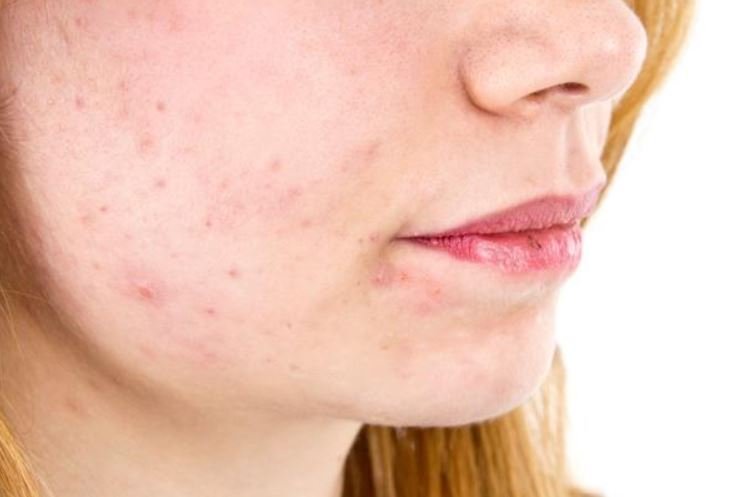

Are you having swollen jaws? Why are they swollen in the first place? Are you worried that this might be a life-threatening medical case? Many people complain of a swollen jaw on one side, lower jaw swelling, swollen jaw muscle and a lump in neck under jaw among others.
Jaw inflammation as some people like calling it is often characterized by swelling. The swelling, in this context, is an indication of some sort of a problem, i.e. it indicates that all is not well.

Why is my left or right jaw swollen?
Swelling under jaw, or swollen jaw bone is the main complaints among many people. When your jaws are swollen, you can imagine how uncomfortable one feels. In fact, the enlarged parts feel larger and heavier than the rest of the face.
Medically, the swelling is a sign of serious a kind of inflammation. Because of this inflammation, a lot of fluid is accumulated in this area. One appears to have a lump. The swelling may be painful, or you can have swelling jaws no pain.
In some instances, the swelling might be mild. In this regard, it might heal on its own. However, some people develop serious painful cases. These ones would require you to promptly visit an ENT specialist.
Having a swollen jaw is not only uncomfortable but also very worrying. These days, any lump is associated with cancer. In this case, such a happening is likely to give some people a couple of sleepless nights.
However, there are many things that can cause this swelling. According to Emedicinehealth.com, having a swollen jaw might be as a result oral surgeries or other dental procedures.
Generally, this condition is attributed to the following 5 main factors:
This is one of the reasons why your jaws might get swollen. If you artificially modify your dentition through surgery, then some swelling might be noted on the jawline. Any surgery that involves the jaw bones and the teeth might cause an inflammation around the affected area, thus the swelling.
Dental surgeries can be of many types. Some of the common surgeries that are likely to cause the swelling include:
If you have recently had a dental surgery, swelling might be a sign that you are not observing the right dental care. To avoid swelling after a surgery, you should strictly adhere to the following practices:
If you observe the above practices, then you are assured that you will not experience jaw swelling after a dental surgery.
This is another possible reason. Lymph nodes under jaw might swell. As a result, the entire jawline appears enlarged. Swollen lymph nodes are attributed to bacterial or viral infections. Consequently, one suffers from lymphadenitis, a condition characterized by jaw swelling.
Generally, lymph nodes play a vital role in ensuring that our bodies are not invaded by bacteria and viruses. They are found in the neck, armpits, under chin and groin area. When the lymph nodes around the neck are get affected and enlarges, then the jawline appears swollen too.
According to Mayoclinic.org, cases resulting from swollen lymph nodes may also come along with the following symptoms:
What makes your lymph nodes to be swollen? Commonly, viral and bacterial infections may make your them to swell. For example, people with a common cold may have their lymph nodes swollen.
Other infections that may make your lymph nodes swell include:
If you are having swollen lymph node under jaw, then consider treating the above conditions first. They are the leading causes. However, a diagnosis is a must to ascertain the exact infection you may be having.
Are you noting some sacs filled with fluid in your jaw bone? These might be cysts. Although benign, they might be the reason why your jaws are swollen. To many people, these cysts are invisible as they are located deep within the jaw bone.
To see them, these cysts are only visible through an x-ray. If you are having a broken tooth, or a bad tooth, you are likely to have these cysts. If you are having these cysts, your jaw becomes very weak. In fact, a minor accident can easily break it. Furthermore, the condition comes along with swelling.
According to Evansondds.com, jaw cysts have become very common today. They are attributed to one’s lifestyle. Some of their risk factors include:
If the swelling on your jaws is because of these cysts, then a surgery is inevitable. The dentist might take an x-ray to ascertain the size of the cyst. If the cyst is small, it will be removed with one surgery. However, there are instances when the cyst is too big for one surgery. In such cases, multiple surgeries are performed.
Many people who complain of a severe toothache know what a tooth abscess is. If your tooth is having a hole in it, a lot of food particles accumulate in this hole. These particles become infected with time. The result is tooth abscess.
If you do not know what it is a tooth abscess is a pocket that is pus-filled. In most cases, it occurs at the root of your tooth. This abscess is mainly attributed to cavities. However, dental work or teeth injury can also cause the condition.
When one is having a tooth cavity, food particles accumulate in it over a period. These particles later become pus. Tooth abscess manifest in the following symptoms:
You can visit a dentist if you have noted one or a few of the above symptoms. The doctor may extract the tooth, do some filing or kill the nerves. Since this condition is attributed to poor dental hygiene and consumption of food with high sugar content, the following measures are recommended for prevention:
With the above precautions, you don’t only prevent tooth decay, but also puts jaw swelling under control.
This condition involves inflammation of the gum due to some infections. Gum infections are caused by food particles that get caught up in between the teeth. As a result, one develops pericoronitis.
It is believed that pericoronitis affects the wisdom teeth. According to Medecinenet.com, pericoronitis can either be chronic or acute. When the condition is acute, one experiences certain symptoms such as:
If you have noted these symptoms, alongside having a swelling jaw, then you understand why it is swollen. Your dentist will recommend the right treatment for you.
References